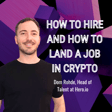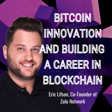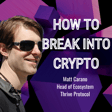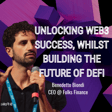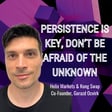
The secret to a successful career in Web3 with Abhinav Vishwa, ex- Director of Engineering, Polygon
Behind the blockchain is a series of conversations with technology leaders who have built successful products, teams and careers in Web3. You will have the opportunity to understand how they were able to achieve their career goals, what skills they have learned, what mistakes and frustrations they might have and what advice they can share with you to help you achieve your own career goals.
In this episode, I speak with Abhinav Vishwa. Abhinav has had a successful career at numerous high profile companies such as Uber and Polygon. When we spoke he had just left his position as Director of Engineering at Polygon to launch his own startup in the Web3 space. Abhinav talked through some of the skills he learned which helped him to achieve his career goals and he talked through some brilliant advice for people looking to build a successful career for themselves in Web3.




